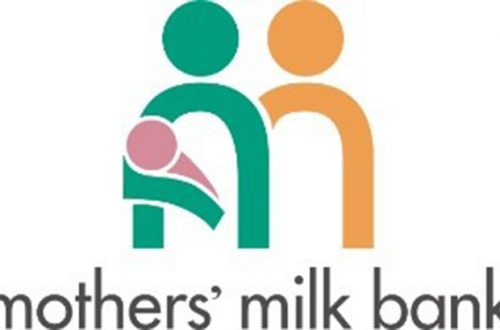Showing Love in Many Languages
By Nicole M. Young, MSW

The primary love language of children and teens may change as they grow, so it helps to learn how to “speak” each language and be ready to show your love in multiple ways.
 “Back in the day” (before COVID-19, when I had to drive places), I used to see an older couple taking morning walks as I drove to meetings or dropped my kids off at school. It always warmed my heart to see them walking the same route, holding hands, swinging their arms in unison, and smiling as they walked and talked. Even from a distance, I could tell they genuinely enjoyed each other’s company, and it made me wonder what their lives were like. How long have they been together? Did they raise children together? Have they endured hardships together? What are they talking about that is so interesting and/or funny? And how do they maintain that obvious, natural joy and love in their relationship?
“Back in the day” (before COVID-19, when I had to drive places), I used to see an older couple taking morning walks as I drove to meetings or dropped my kids off at school. It always warmed my heart to see them walking the same route, holding hands, swinging their arms in unison, and smiling as they walked and talked. Even from a distance, I could tell they genuinely enjoyed each other’s company, and it made me wonder what their lives were like. How long have they been together? Did they raise children together? Have they endured hardships together? What are they talking about that is so interesting and/or funny? And how do they maintain that obvious, natural joy and love in their relationship?
It also made me realize they must know each other’s “love language,” a concept that Dr. Gary Chapman wrote about in his book, “The 5 Love Languages.” Dr. Chapman believes everyone expresses and experiences love in the same five ways – physical touch, gifts, words of affirmation, acts of service, and quality time – but each person has a primary language that is most meaningful to them. Relationships are more likely to thrive when people show their love in the language that the other person prefers – even if it’s different from their own primary love language.
This is true in romantic relationships, as well as relationships between parents/caregivers and their children and teens. The primary love language of children and teens may change as they grow, so it helps to learn how to “speak” each language and be ready to show your love in multiple ways. Here are some ideas for speaking the love language of your children (and try them with your partner and other important people in your life!):
Physical Touch
This is also a Triple P parenting strategy for building strong relationships. Show your love through physical touch and affection, including hugs, back rubs, holding hands, snuggles, high fives, tickling, or even wrestling.
Receiving Gifts
If this is someone’s primary love language, it doesn’t mean they are shallow or materialistic. Instead, they assign special meaning to physical items they receive from someone they care about. The actual gift could be a note, a flower, a star or sticker on a chore chart – i.e. it doesn’t have to be an expensive present. Likewise, if this is your child’s love language, then it will mean a lot when you show appreciation for the gifts they give to you – a drawing, a school art project, or a rock or shell they found on their walk with you, for example.
Words of Appreciation
For some people, hearing praise, positive feedback, supportive words, encouragement, and acknowledgement feeds their soul. It reminds them they are seen and valued and both their efforts and accomplishments are noticed. Try leaving notes in surprise places (on their pillow, on a computer or notebook), sending texts, giving praise and encouragement, or letting them overhear you tell someone else (even your family pet or child’s favorite stuffed animal) how much you love and appreciate them.
Acts of Service
This doesn’t mean doing everything for your kids (or partner) whenever they want something. Instead, speak this love language through thoughtful gestures, like making their favorite food for dinner, helping them with a difficult homework assignment, or occasionally doing one of their chores for them when you know they’re feeling overwhelmed or stressed.
Quality Time
This is also one of the most effective Triple P strategies for building strong relationships. In Triple P, quality time can be brief and frequent – it doesn’t always require dedicating hours to doing an activity together, which often feels impossible and unrealistic. The most important thing to do is to stop what you’re doing and give your full attention when your child or teen wants to talk or show you something. This shows you care about their needs, opinions, and interests – and that you’re available when they need you.
Final Thoughts
Think about which love languages mean the most to you and other people in your family. Express your love for them in their preferred love language – even if it feels unnatural or unnecessary to you. Being willing to learn and “speak” someone else’s love language is part of showing you care. And if your family needs help speaking your love language, give them some ideas – “I really love it when you leave me little notes – it makes me feel good to know you’re thinking about me” – until they become fluent in your love language!
Nicole Young is the mother of two children, ages 17 and 20, who also manages Santa Cruz County’s Triple P – Positive Parenting Program, the world’s leading positive parenting program. Scientifically proven, Triple P is made available locally by First 5 Santa Cruz County, the Santa Cruz County Health Services Agency (Mental Health Services Act) and the Santa Cruz County Human Services Department. To find a Triple P parenting class or practitioner, visit triplep.first5scc.org, facebook.com/triplepscc or contact First 5 Santa Cruz County at 465-2217 or triplep@first5scc.org.








